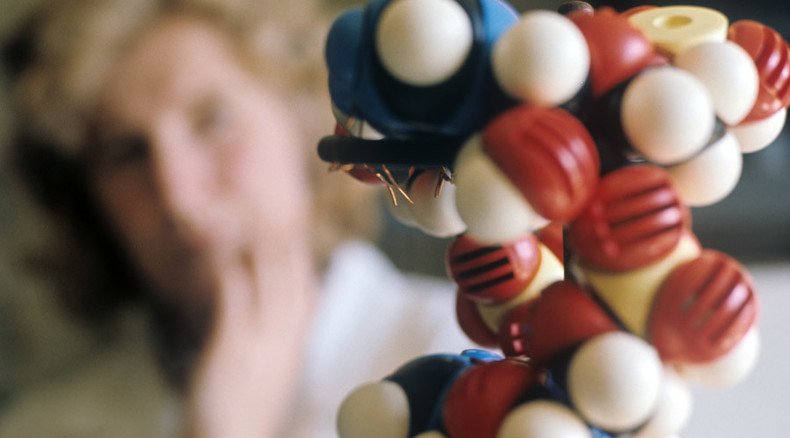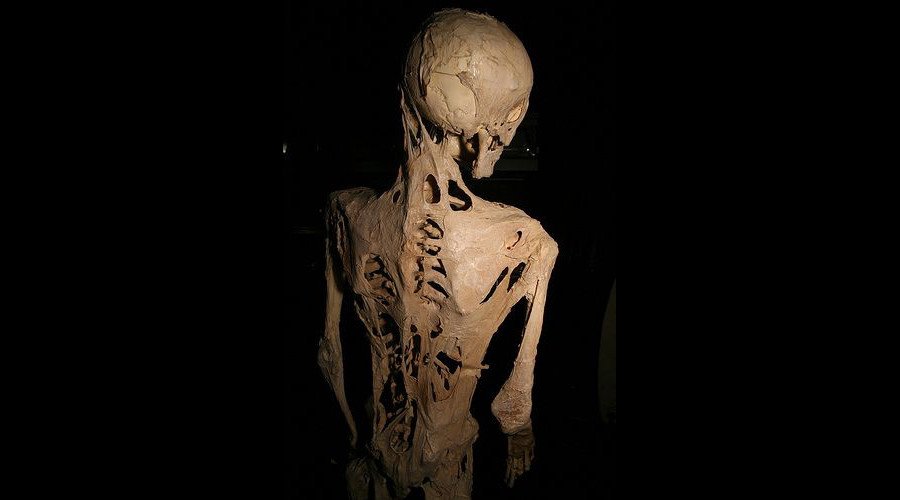Rare ‘stone man’ disease could be treated, breakthrough research shows

Researchers may have developed the first effective method of treating the so-called ‘stone man’ disease. It is rare, genetic and turns muscles, tendons and ligaments into bones, thus building a second skeleton.
With the scientific name of fibrodysplasia ossificans progressive (FOP), the disease is a very rare one, with only one in every two million people suffering from it. The severe and deadly illness turns muscles into bones. It begins in the neck and shoulders and later spreads to the whole body. Patients eventually cannot open their mouths normally, which makes eating and speaking difficult. They also have problems with breathing and become less and less mobile over years.
A team of scientists proceeded from the fact that FOP is caused by a mutation in a gene called ACVR1, which is responsible for bone and muscle development. Their study was published in the journal Science Translational Medicine.

“The ACVR1 gene is crucial for healthy bone and muscle development as early as in the womb,” senior author Aris Economides, executive director at biopharmaceutical company Regeneron Pharmaceuticals Inc. based in Tarrytown, NY, told Healthday.
Patients with the mutation have abnormal concentrations of a protein called Activin A. This stimulates uncontrolled bone growth while normally this protein blocks the process.
READ MORE: Altered blood cells hunt and kill cancer, lead to remission in some patients – report
The scientists developed an antibody capable of blocking Activin A to prevent FOP development. The medicine was tested on mice with no side effects detected.
"We are very fortunate and grateful that not only did Regeneron make this basic science discovery, but that, as a biotechnology company with expertise in developing antibodies, they are in a position to act on it and answer the next questions about whether this could lead to a meaningful therapy," said Betsy Bogard, director of global research development for the International FOP Association.
READ MORE: ‘Super-smart mice’ might help cure Alzheimer’s and schizophrenia – study
The study may become a breakthrough in treating FOP as up to now no effective treatment has been proposed. Surgery doesn’t help and in fact merely accelerates bone growth.













